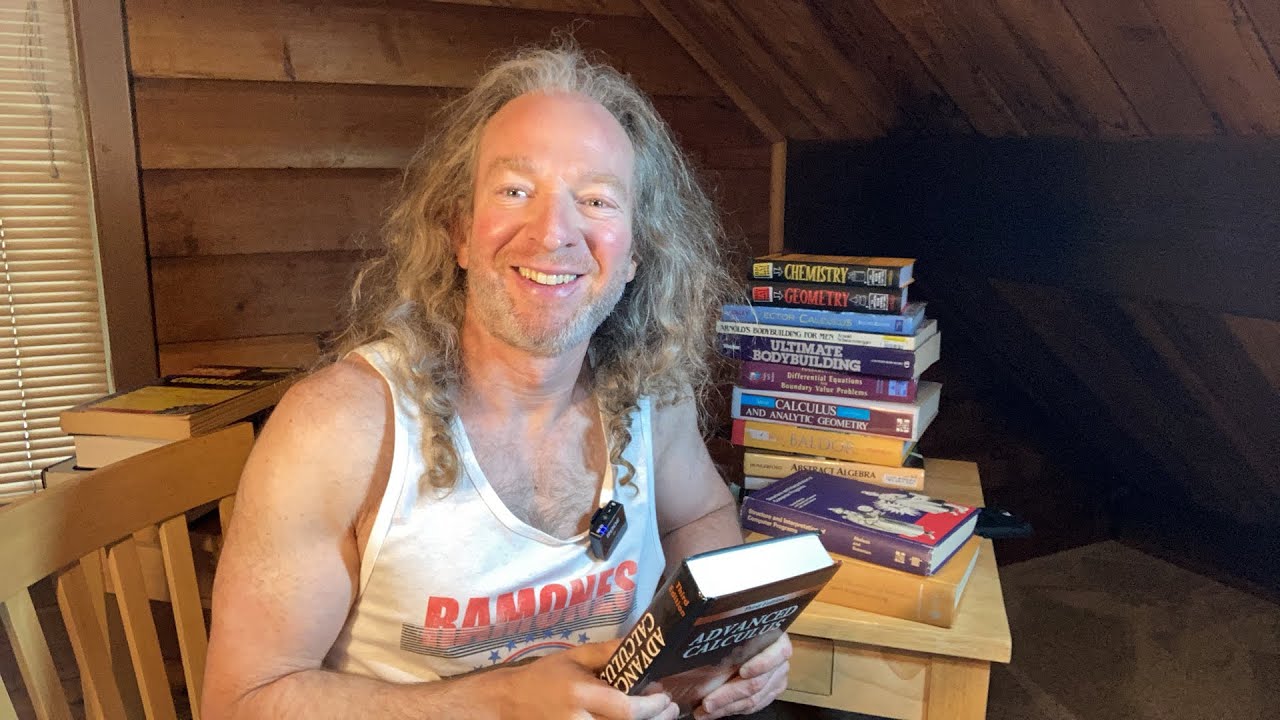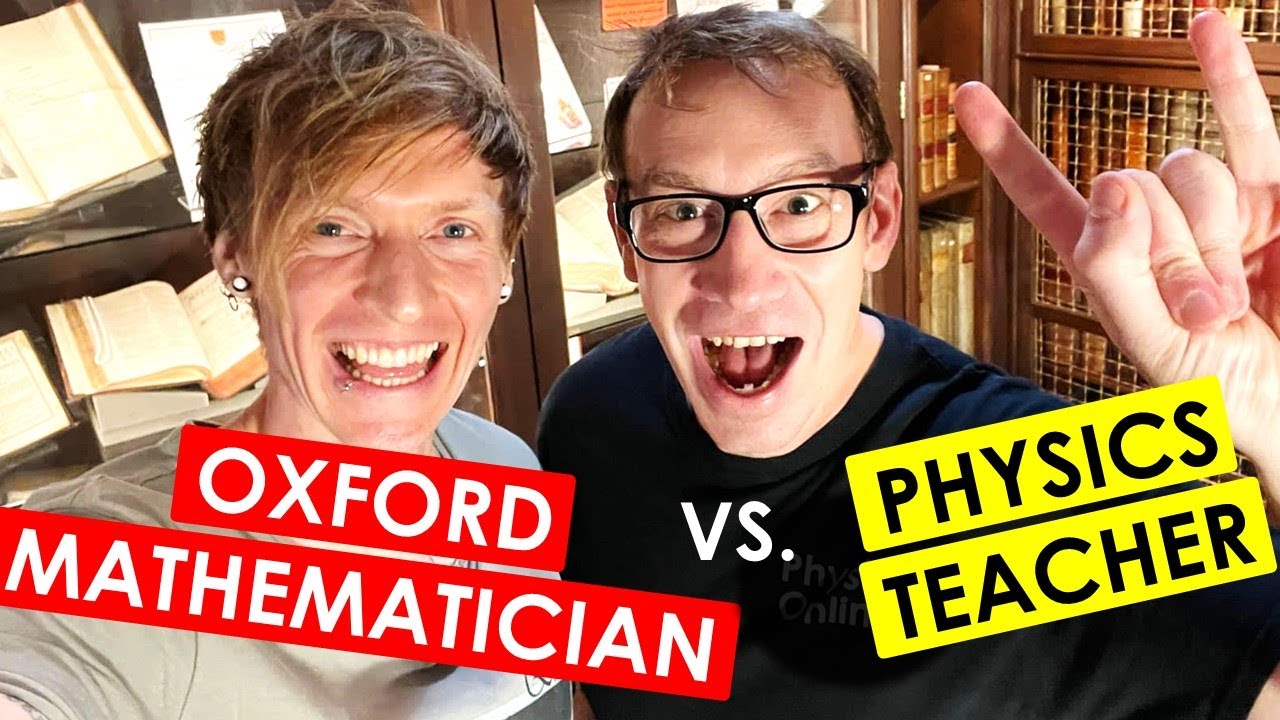Teaching myself an upper level pure math course (we almost died)
TLDRIn this sponsored video, the host shares his experience of self-teaching 'Real Analysis,' an upper-level math course typically taken by math and physics majors. He discusses the challenges and rewards of learning pure math, emphasizing the importance of self-teaching skills for personal and professional development. The host provides insights into the nature of real analysis, which involves rigorous study of calculus concepts from the ground up. He also offers practical advice for tackling difficult problems and the value of revisiting material to reinforce learning. The video concludes with a recommendation for a specific real analysis textbook suitable for self-teaching and a discount offer for CuriosityStream, a platform featuring documentaries including one on the significant role of mathematics in World War II.
Takeaways
- 📚 The video discusses self-teaching a textbook, specifically 'Real Analysis', and emphasizes the value of self-teaching as a skill for personal and professional development.
- 🧠 The speaker shares their experience of going through a pure math class, 'Real Analysis', which is an upper-level math course typically taken by math and physics majors.
- 🔍 Real Analysis is described as a rigorous study of concepts from calculus, including limits, derivatives, integrals, and continuity, but with a focus on proofs and theoretical understanding rather than practical applications.
- 🤔 The video highlights the challenges of self-teaching, such as getting stuck on difficult problems and the lack of guidance on when to move on from a topic or problem.
- 📈 The importance of reviewing material and doing practice problems is stressed, as it helps with retention and understanding of complex concepts.
- ⏳ The process of self-teaching 'Real Analysis' took the speaker about four and a half months, with varying levels of daily commitment and practice.
- 📘 The speaker recommends a specific textbook for self-teaching 'Real Analysis', suggesting it strikes a good balance between rigor and accessibility for self-learners.
- 💡 The video mentions the creative and abstract thinking required in pure math, as opposed to the more formulaic approach often found in applied math.
- 📝 The speaker advises on strategies for dealing with getting stuck on problems, such as looking up solutions and then re-attempting the problem later to reinforce learning.
- 🎓 The video touches on the broader applications of rigorous mathematical understanding, such as in topology and physics, even if the immediate study is not directly applied.
- 🎥 CuriosityStream is thanked for sponsoring the video, and a documentary on the platform about cryptography and its impact on World War II is recommended.
Q & A
What is the main topic of the video?
-The main topic of the video is the speaker's experience with self-teaching real analysis, an upper-level math class, and the value of self-education.
Why does the speaker emphasize the importance of self-teaching skills?
-The speaker emphasizes the importance of self-teaching skills because it's a valuable skill to have, especially later in life when one might want to learn something new for fun, business, or professional life without the need for formal education.
What is the specific textbook the speaker refers to in the video?
-The specific textbook the speaker refers to is not named, but it is about real analysis, and the speaker recommends it for self-teaching purposes.
What does the speaker mean by 'rigorously' in the context of real analysis?
-In the context of real analysis, 'rigorously' means learning calculus concepts such as limits, derivatives, integrals, etc., from a foundational level, proving theorems, and understanding the underlying principles deeply.
What are some of the challenges the speaker faced while self-teaching real analysis?
-Some challenges the speaker faced include spending a lot of time on problems without knowing how to start, the lack of guidance on when to move on to the next topic, and the need to review and reinforce learned material without the structure of quizzes and tests.
How long did it take the speaker to go through the real analysis textbook?
-It took the speaker about four and a half months to go through the textbook, working on it almost every day with breaks no longer than one or two days.
What is the speaker's strategy for dealing with practice problems in self-teaching?
-The speaker's strategy includes doing at least four to five practice problems from the end of each section, reviewing the problems later, and ensuring understanding by redoing the problems after looking up the solutions.
Why does the speaker like the solutions in pure math problems?
-The speaker likes the solutions in pure math problems because they often require creativity and abstract thinking, and the speaker finds the cleverness and unexpectedness of the solutions interesting.
What advice does the speaker give for dealing with getting stuck on a problem while self-teaching?
-The speaker advises not to be discouraged when getting stuck, to look up the answer and understand why it is correct, and to try the problem again later to reinforce learning.
What documentary does the speaker recommend on CuriosityStream related to mathematics?
-The speaker recommends a documentary called 'Code Breaker' which tells the story of how mathematics and cryptography were used to help end the Second World War.
Outlines
📚 Self-Teaching Real Analysis: A Valuable Skill
The speaker discusses the importance of self-teaching, particularly in the context of advanced mathematics. They share their experience of completing a real analysis textbook independently, emphasizing the value of learning how to teach oneself, especially for those who wish to acquire new knowledge later in life. The speaker also introduces the concept of real analysis as an upper-level math class, which is a pure math subject that typically requires a strong foundation in proofs and mathematical reasoning. They mention the challenges faced, such as spending significant time on problems without immediate solutions, and the satisfaction of eventually figuring them out or learning from the process of giving up.
🔍 Deep Dive into Real Analysis: Beyond Traditional Calculus
This section delves into what real analysis entails, explaining that it is a rigorous study of calculus concepts such as limits, derivatives, integrals, and continuity, but from a foundational and theoretical standpoint. The speaker clarifies that real analysis is not about applied problems but rather about proving theorems and understanding the underpinnings of mathematical concepts. They provide examples of the types of problems encountered in real analysis, such as proving the impossibility of a function being continuous at rational numbers and discontinuous at irrational numbers. The speaker also touches on the applications of real analysis in more advanced fields like topology and its relevance in physics and computer science.
⏱️ The Journey of Self-Teaching: Time Investment and Strategies
The speaker shares their personal journey of self-teaching real analysis, mentioning that it took about four and a half months with almost daily engagement. They discuss the challenges of self-teaching, such as determining when one has sufficiently understood the material to move on without the guidance of a teacher or structured curriculum. The speaker also emphasizes the importance of reviewing material regularly to reinforce learning and suggests strategies for dealing with difficult problems, such as revisiting practice problems that were initially skipped and using solutions manuals to understand the correct approach.
🤔 Overcoming Challenges in Self-Teaching: Creativity and Persistence
The speaker reflects on the creative and abstract thinking required in pure math classes like real analysis, where problem-solving often involves constructing new functions or applying theorems in novel ways. They share their appreciation for the clever solutions and the process of thinking abstractly, which is a stark contrast to more applied math fields. The speaker also addresses the discouragement that can come from getting stuck on difficult problems and encourages persistence, suggesting that looking up solutions is a valid strategy as long as one takes the time to understand and reattempt the problem later.
📘 Recommended Textbook for Self-Taught Real Analysis
The speaker recommends a specific textbook for those interested in self-teaching real analysis, suggesting that it strikes a good balance between rigor and accessibility. They advise against choosing the most difficult textbook if it might discourage learners, especially those doing it as a hobby. The speaker also discusses the importance of having a solution manual and the value of revisiting problems to solidify understanding. They conclude by mentioning an upcoming video that will showcase a proof from the textbook and thank the sponsor, CuriosityStream, for their support.
Mindmap
Keywords
💡CuriosityStream
💡Self-teaching
💡Real Analysis
💡Proofs
💡Rigor
💡Metric Spaces
💡Fourier Analysis
💡Continuous Functions
💡Practice Problems
💡Rôle's Theorem
💡Mean Value Theorem
Highlights
The video discusses the value of self-teaching and the importance of being able to learn independently, especially after college.
The speaker shares their experience of self-teaching 'Real Analysis', an upper-level math class typically taken by math and physics majors.
Real Analysis is described as a rigorous study of calculus topics such as limits, derivatives, integrals, and continuity, but from a foundational perspective.
The video emphasizes the difference between Real Analysis and applied calculus, noting that Real Analysis is more abstract and proof-based.
The speaker explains that Real Analysis helps in understanding advanced concepts like topological spaces and continuous mappings, which have applications in physics and computer science.
The process of self-teaching is detailed, including the time commitment and the approach to working through the textbook and practice problems.
The importance of reviewing material and doing practice problems is highlighted as a key part of self-teaching to reinforce learning.
The speaker admits to getting stuck frequently while self-teaching and emphasizes that this is a normal part of the learning process.
A strategy for dealing with difficult problems is shared: understanding the solution, and then reattempting the problem after some time has passed.
The video recommends a specific textbook for those interested in self-teaching Real Analysis, noting its suitability for self-study.
The speaker reflects on the enjoyment of solving abstract problems in Real Analysis and the creativity it requires.
The video touches on the discouragement that can come from struggling with complex material and offers encouragement to persist.
The importance of not rushing through material and the value of spending time on a single page to fully understand the concepts are discussed.
The video mentions a documentary on CuriosityStream about the use of mathematics and cryptography during World War II, highlighting the applied nature of math.
A promo code for CuriosityStream is provided, offering a discount for a yearly subscription to access a wide range of documentaries.
Transcripts
5.0 / 5 (0 votes)
Thanks for rating:





